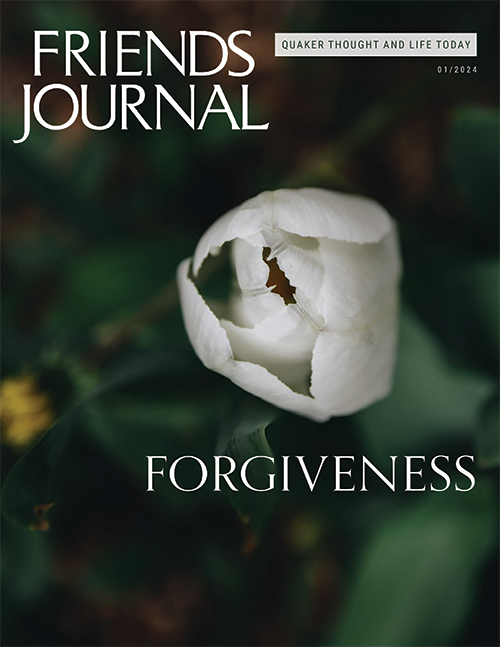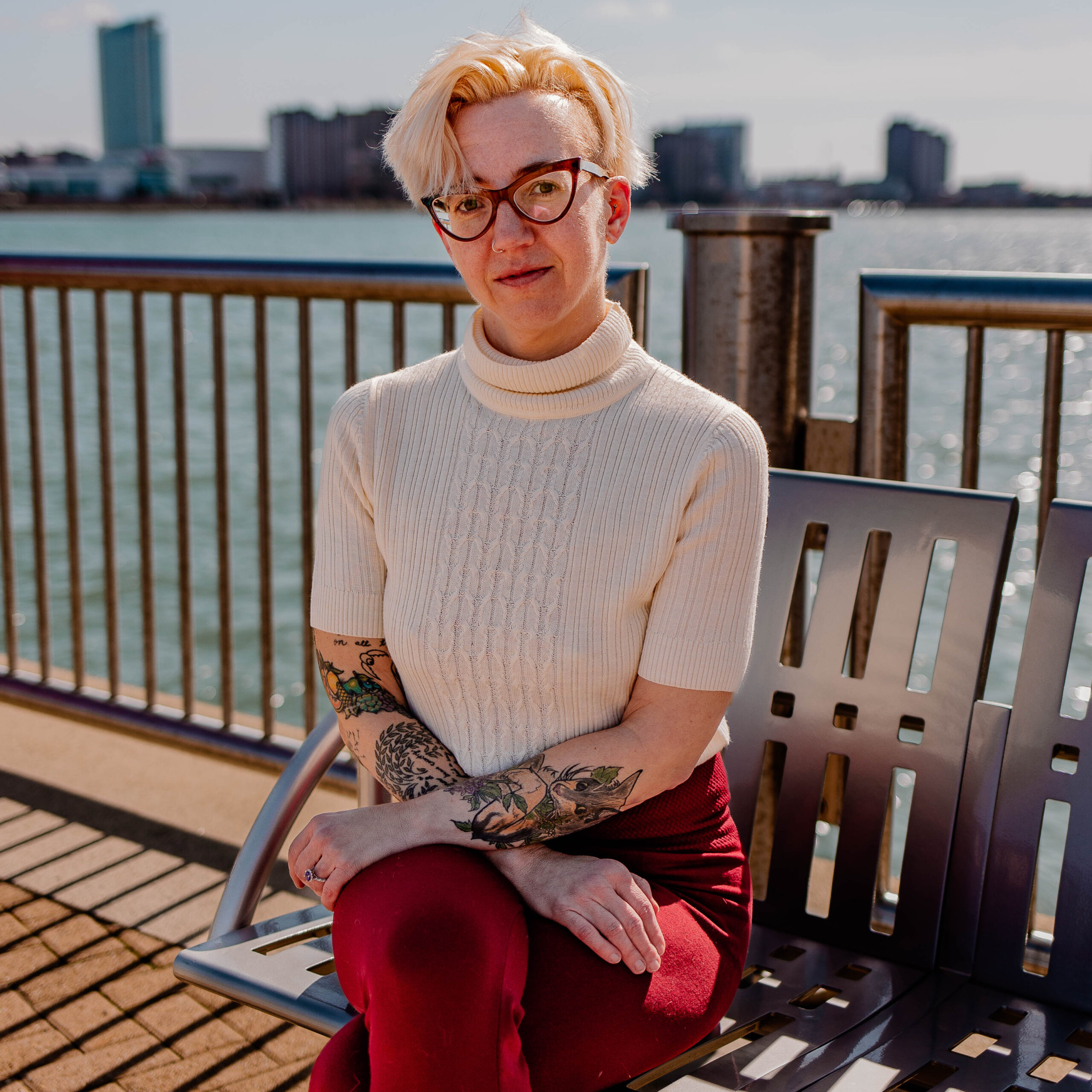Acknowledging the Harms We Have Inflicted
As a psychiatrist, I once worked with a trans man who, after several years of devastating setbacks, got the opportunity to move to Texas (where he has some family support) and start fresh. He was recently divorced and seemed so lost. He might have expected his psychiatrist to point out the folly in “running away from his problems,” but I was truly happy for him, and I told him so. His plan was to visit over Thanksgiving, to look for housing and get a feel for the area. His family invited him to go to church with them; he was hesitant, but they were insistent. At the church service my client was introduced to members of the congregation who then put their hands on him and prayed over him. “The last time that happened to me was in conversion therapy,” he said. Then he told me he decided not to move to Texas after all.
Not long after that session, I happened to stumble across a Netflix documentary about conversion therapy, essentially a form of torture in which queer kids are told God will accept them if they renounce who they are. The movement’s puppets were gay people who claimed to have been cured from their illness, and then made it their mission to reach out and spread the word. They hit the talk show circuit, telling people like Phil Donahue things like: “And look at me now! I’ve got a daughter, with my wife, who used to be a lesbian!”
The documentary shows where some of those leaders ended up. They’re now openly gay, living authentic lives, and in healthy romantic relationships. However, they also carry shame about the harms they inflicted on members of their queer community in the past. One of them said he’d been asked at a conversion therapy protest, “How do you feel about the blood on your hands?” He responded: “I’m afraid to even look down at my hands.”
It is my belief that the courage to acknowledge harms we have inflicted is what may save our species.
The light took the time to remind me who I was the day I was born; who I still was at my core; and who I will always be: part of light itself, atoms from old stars, matter and energy that can be traced back by one continuous thread to the origin of the universe. This light, my essence, can never be damaged or destroyed. Neither can yours.
I was fortunate enough to have completed my psychiatry residency training at Columbia University, where Robert Spitzer was at that time a professor emeritus. He was a groundbreaking phenomenologist who came up with the idea that we can find a way to classify and diagnose mental disorders in a systematic, standardized way, one that could be replicated from one clinician to another with some degree of validity. Spitzer knew this was psychiatry’s only way to legitimize itself and break free from its airy-fairy image. So he authored a book called Diagnostic and Statistical Manual of Mental Disorders, referred to as the DSM. He and his colleagues made the decision to add “homosexuality” to the manual, thereby classifying it as a mental illness. If something is an illness, it follows that it can be diagnosed, treated, and cured. Christian nationalists ran with that, of course.
Homosexuality was eventually removed from the DSM in 2013. More importantly, a few years before he died, Spitzer wrote a public letter (covered in the New York Times and others) in which he apologized to the LGBTQ community for his study making unproven claims of the efficacy of reparative therapy. It was a move that shocked many, as distinguished Ivy League professors are not known for their public displays of humility.
The same is true for many other physicians, even some who have inflicted more harm than Hippocrates could have ever imagined when he wrote his first rule. We’re all still waiting for Richard Sackler, for example, to notice a single drop of blood on his hands for his role in creating the opioid epidemic, which has taken or destroyed more than three million lives in the United States.
The fact that Sackler has not been held publicly accountable for his actions may or may not say anything about his quality of sleep at night. He may lack capacity for empathy in the same way an infant lacks the capacity to walk. Of course, infants, if nurtured, can learn. But they learn by falling, and then adjusting; they do not learn by selectively ignoring missteps.

I am also a physician who has specialized in missteps. And most of what I learned from them, I learned in recovery. People with substance use disorders often talk about “hitting rock bottom” as the moment they opened their eyes to the damage they have done. There is nothing pleasant about this experience. But today, I feel grateful that rock bottom was there to catch me. The pavement was there to remind me I could stop. My bones left a crack in it so light could get in. That light first gave me courage, then showed me the blood on my hands.
Rock bottom: you, too, were a gift to me. (It took me years to understand.)
Rock bottom: prized gift horse, mouth covered with festive wrapping: I won’t princess-and-the-pea anything that catches me.
I recently read Kurt Vonnegut’s novel Bluebeard. It’s about Rabo Karabekian, an Armenian American artist who could paint and draw highly intricate scenes with the accuracy of a savant. But because his early teachers had told him his work “lacked soul,” he instead made a name for himself in the art world with highly praised expressionist paintings, satirized by Vonnegut as huge panels painted a single color. In this way, he managed to paint with “soul” by imagining each stroke of paint as a neon tube, with a story all its own. Pathetically, though, because of the defective brand of paint he’d used, his work literally disappeared after a period of years. The artist comes to understand the human soul as neon tubes of light within each and every one of us; by contrast, the fragile and finite paint surrounding our essence is simply “meat.” Karabekian explains to a friend:
“So when people I like do something terrible,” I said, “I just flense them and forgive them.”
“Flense?” he said. “What’s flense?”
“It’s what whalers used to do to whale carcasses when they got them on board,” I said. “They would strip off the skin and blubber and meat right down to the skeleton. I do that in my head to people—get rid of all the meat so I can see nothing but their souls. Then I forgive them.”
To grossly oversimplify anatomy for the purposes of spiritual discourse, there is one layer between the soul and the flensed meat: it’s blood. Specifically, the blood on one’s hands, having been brought to light by light—the same light that gives us the courage to watch all the replays of our missteps, so we can learn how to walk.
Quakers are like spiritual butchers, flensing to find the Inner Light within even those who have done terrible harms. We can flense Richard Sackler at his lowest. We can flense ourselves at our darkest.
As for me, a wounded healer and spiritual seeker, the light through the cracked pavement took the time to remind me who I was the day I was born (sweet, pure, innocent); who I still was at my core (bloody hands and all); and who I will always be: part of light itself, atoms from old stars, matter and energy that can be traced back by one continuous thread to the origin of the universe. This light, my essence, can never be damaged or destroyed. Neither can yours.
Shame lights one end; then light can pass through me. I pass it to the left by sharing my story. Stranger in the night, if you don’t know who you are anymore, look up. The light will find you and remind you—no matter what you did. As long as you can listen, the stars will twinkle with miraculous news. You are in fact part of the light, and, just as wondrous, you are only a miniscule part. These truths exist simultaneously. You cannot appreciate that you are part of the light until you can appreciate that everyone is—yes, everyone.
Look up; listen. Look inward; hear. You and me and even them, I see it so clear: we are love and light itself. Once we can see this, we become mirrors.
I have a growing list of people to whom I owe amends, and since most of them are no longer in my life, they must be living amends, as I try every day to live a kind and brave life that honors the light of the Divine in every being. Instead of lying my hands on someone else in the name of God, or of “healing,” may I continue to have the courage to look down at my own: to learn from whatever blood stains I may find there, and to instead use my hands to lift someone else up.
The light is in you; the light is in me. I see the blood on your hands; I see the light, too. I see these things simultaneously. This I call love. James Baldwin once said: “The longer I live, the more deeply I learn that love—whether we call it friendship or family or romance—is the work of mirroring and magnifying each other’s light.”
Look up; listen. Look inward; hear. You and me and even them, I see it so clear: we are love and light itself. Once we can see this, we become mirrors.





Psychology’s reputation would be far better if non-profit and emphasized positives, rather than negatives. So many traits once considered slightly different, but tolerable before the DSM (written behind closed doors by psychologists with conflicts-of-interests) are now labeled abnormal, as a way to provide viable for-profit careers for psychology majors who were likely just people persons trying to avoid math and better understand own self in college. More concerning is psychiatrists pushing profitable prescription pills on people, including minors, with very limited scientific proof of significant credible efficacy, let alone long-term studies on harmful side-effects. Perhaps psychologists would help our world far more as ministers, but what rare young adult wants to spend three (sometimes four) years in seminary, when most master’s degree take two years full-time to start pursuing wealth. Jesus got psychology right a long time ago by emphasizing the positive (love God and neighbor) and equality of all without pursuing personal gain. Jesus also very clearly pointed out there are more than two genders. Older men and women, and many chemo patients, eventually learn and understand the change when hormones no longer dominate behavior. Committed childless partners could help reward low risk pregnancies by adopting and fostering kids, helping reduce unnecessary abortions of convenience.